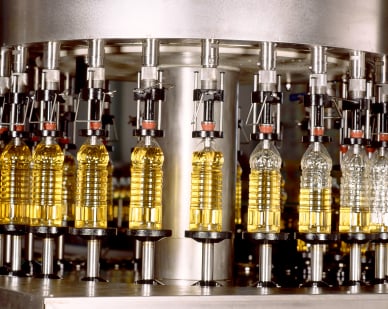This guest post is authored by Dave Loesche, Director of DCSNext, MAVERICK Technologies.
Today, I want to look at two primary issues facing food and beverage processors: food safety and compliance with government regulations. The two go hand in hand. With the results of the recent election, the Food Safety Modernization Act (FSMA) will move forward and the provisions of the law will impose new requirements that food processors will need to comply with.
The key to complying with these new regulations will be the need to validate the production processes, which includes:
- Tracking product ingredients and creating a genealogy
- Tracking and confirming that proper sanitation steps have been taken and verifying their effectiveness
- Monitoring and capturing process and machine data to confirm compliance with product specifications
This validation will allow for quick access to data in the event of a product recall and will enable manufacturers to comply with government regulations enforced by the FSMA.
Product recalls result in food processors losing millions of dollars in real costs associated with pulling products from store shelves and ensuring recalled products are properly eliminated. The costs associated with customer goodwill and lost sales are also difficult to calculate, and can be even more substantial than the actual costs. Having access to production data is key to minimizing the financial impact from product recalls in addition to avoiding potential product safety issues.
Facilitating access to this type of data can be addressed by establishing an Enterprise Batch Record, which can store tons of information about the product manufacturing process, including:
• Batch Header, Status, and Results
• Supplier Information
• Materials Produced and Consumed
• Distribution Information
• Processes Performed and Process Data
• Equipment Used and Equipment Data
• Labor Used and Labor Data
• HACCP Results
• Safety Results
• Quality Results
• Deviations and Incidents
• Maintenance Activities
• Sanitation & CIP Activities
Many food processors have existing point solutions such as SPC, HACCP and WMS to support their operation and therefore, do not need a large platform solution. An Enterprise Batch Record can integrate and consolidate the key production information needed to address food safety and comply with government regulations.
If you are a food and beverage processor, do yourself a favor and research different ways to approach manufacturing execution systems and consider using Enterprise Batch Records. Rob Gellings, a colleague of mine at MAVERICK, recently wrote a white paper on the case for Enterprise Batch Records to implement MES. Here are three takeaways:
- Manufacturers need a cost-efficient MES solution that is not disruptive to their installed base of technology, is scalable and allows them to incrementally implement the functionality they identify as necessary.
- By moving away from the application-first approach and instead creating an Enterprise Batch Record to capture information relevant to your operations, we can support any functions that are of value through individual applications that leverage the information.
- A solution approach to MES development offers value in flexibly, cost effectiveness, focus on the manufacturing process—not the software.
How will you approach the FSMA regulation, including ingredients, sanitation and capturing data for compliance?
About the Author
Dave Loesche serves as a MAVERICK Industry Business Leader with a focus on MAVERICK’s Food & Beverage/Consumer Products business segments. In this role, Dave is responsible for aligning MAVERICK’s service offerings and resources to address the unique automation and business challenges experienced by companies that operate in the food & beverage / consumer products industries. Dave joined MAVERICK in 2000 after directing the systems integration group for a major manufacturer of industrial product ID systems. He previously served in business development and project management roles. He earned his Bachelor of Science degree in engineering at Southern Illinois University Carbondale and his MBA at Webster University. He holds a certification as a Project Management Professional (PMP).




